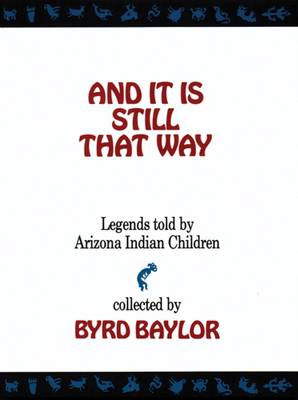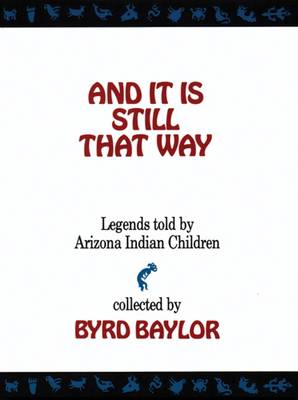
- Retrait gratuit dans votre magasin Club
- 7.000.000 titres dans notre catalogue
- Payer en toute sécurité
- Toujours un magasin près de chez vous
- Retrait gratuit dans votre magasin Club
- 7.000.0000 titres dans notre catalogue
- Payer en toute sécurité
- Toujours un magasin près de chez vous
12,45 €
+ 24 points
Description
Byrd Baylor asked children--Navajo, Hopi, Tohono O'odham, Pima, Apache, Quechan, Cocopah--to choose a story told to them by someone in their own tribe. It should be their favorite story, maybe the best story in the world. That story would be their gift to other tribes, to other children. It would share some of the oldest magic of the Indian world.
At a school in southern Arizona, Byrd Baylor saw a story about Rattlesnake and how he made the first brush shelter so the Papago people would have shade. This story was told by a Tohono O'odham child. As soon as I read the story, Byrd said, I knew I wanted a special kind of book to hold this special kind of story. It would have to be written by children, not tampered with too much by adults. So I took the Rattlesnake story with me for good luck and camped in my favorite places and went to dances and ceremonials along the way...and talked to children in reservation schools. We talked about storytelling in the Indian way. We talked about how it feels to hear stories that aren't made up new and written down in somebody else's book but are as old as your tribe and are told and sung and chanted by people of your own family, your own clan. We talked about how it feels to hear stories that go back to the oldest memories of your ancestors, to times when animals talked like people, times when people changed into stars or rocks or eagles, times when the world was still new and there were monsters to be killed and heroes to kill them and gods to teach the first people the first things they needed to know. I asked the children (Navajo, Hopi, Tohono O'odham, Pima, Apache, Quechan, Cocopah) to choose a story told to them by someone in their own tribe. It should be their favorite story, maybe the best story in the world. That story would be their gift to other tribes, to other children. It would be sharing some of the oldest magic of the Indian world. In Arizona, Indians don't tell their stories in summer. The old people say snakes don't like to hear them and sometimes it makes them angry and they come and bite the storyteller. So stories are saved for winter when the snakes are sleeping. In gathering these stories, I saved them for winter too. I did not ask anyone to tell them in summer and I hope whoever reads them now will put the book away during the hot part of the year when snakes are listening. Most of the stories in And It is Still That Way are just bits and pieces of longer and more complicated legends, but they are the part the children remember.Spécifications
Parties prenantes
- Auteur(s) :
- Editeur:
Contenu
- Nombre de pages :
- 80
- Langue:
- Anglais
Caractéristiques
- EAN:
- 9780938317364
- Date de parution :
- 01-01-98
- Format:
- Livre broché
- Format numérique:
- Trade paperback (VS)
- Dimensions :
- 153 mm x 204 mm
- Poids :
- 154 g

Les avis
Nous publions uniquement les avis qui respectent les conditions requises. Consultez nos conditions pour les avis.






